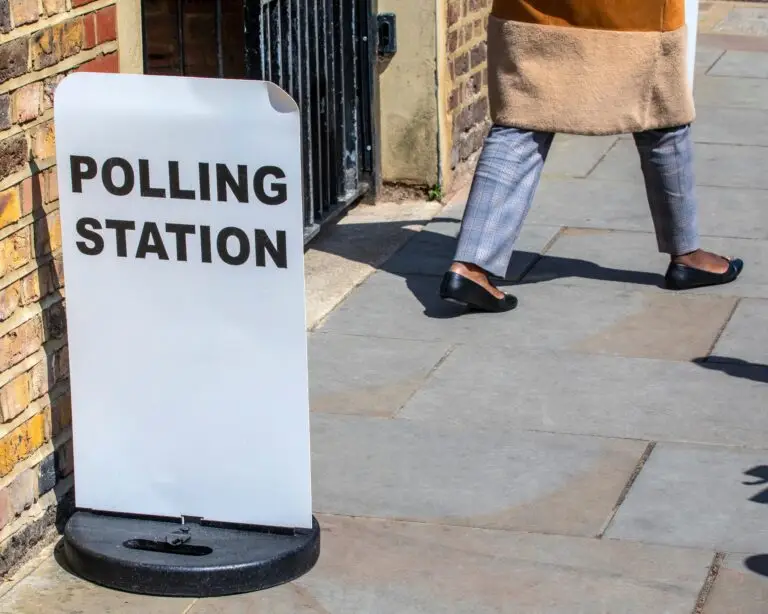Rutherglen and Hamilton West
As voters head to the polls in the south-east of Glasgow today, the mood has, so far, been one of apathy rather than enthusiasm. The Rutherglen and Hamilton seat has swung between SNP and Labour hands since 2010, with SNP candidate Margaret Ferrier winning with a 9.7% majority in the 2019 General Election. After breaking rules set during the Covid-19 pandemic, Ferrier was removed by her constituents, leading to the first recall by-election in Scotland.
Campaigning in the area began early, with both parties increasing their local presence and activity before the formal campaign commenced, illustrating the value they place in terms of political capital, on winning this seat. While the SNP’s messaging has focused on demonstrating the lack of differences between the policies of Starmer and Sunak, Labour’s rhetoric has tried to highlight the wider failings of the SNP for Scotland in the last decade and their own credits as a party for the people.
The retention of the seat will be an important first victory for new SNP leader, Humza Yousaf, as he attempts to exhibit effective leadership over the party following the resignation of the SNP’s former leader of 9-years, Nicola Sturgeon, in March. The First Minister has already spoken of the challenges the SNP faces in a marginal seat like Rutherglen and Hamilton West, but he remains “hopeful” that the voters will choose his party.
Meanwhile for Starmer, a win in Scotland would show progress for the party from 2019 and that they have learnt from their failures after being unsuccessful in a 2021-by-election in Airdrie and Shotts. As Starmer prepares to visit Liverpool for the Labour Party Conference this weekend (8-11 October), a triumph would also provide much impetus for the leader and a cause for celebration amongst members. Indeed, more broadly, Starmer will be hoping that a victory in Rutherglen and Hamilton West will set his party on the right trajectory for the general election next year.
Tamworth & Mid-Bedfordshire
Further south, two more by-elections are set to be held this Autumn, bringing the total number of parliamentary by-elections held since the last general election up to 19. These contests will take place on 19 October for the seats of Mid-Bedfordshire, following the resignation of Nadine Dorries, and Tamworth, after the incumbent Chris Pincher resigned.
Despite the Conservative’s 42.6% majority in Tamworth in 2019, the seat is a marginal one that will be challenging to retain. Moreover, with Sunak’s announcement yesterday about the axing of the northern leg of HS2 from Birmingham to Manchester – a move which has received fierce criticism from Birmingham Mayor Andy Street – the leader could have sealed his party’s fate ahead of time.
However, the result will not be an easy victory for the Labour Party either. In 2019, Labour secured just 23.7% of the vote share in Tamworth, meaning they have a long way to climb to deliver a majority on the 19th. Despite this, if Labour can translate the data from national polls into these individualised by-elections, they may be in for a successful Autumn. More likely, it is the case that Labour – as in Rutherglen and Hamilton West – may be able to edge to victory by not being the other party. Whilst this may provide life to the party for this set of by-elections, that alone will not be enough to get them into government next year.
Elsewhere, the Mid-Bedfordshire seat has been safely Conservative since its creation. While the conditions of Dorries’ exit – namely her being absent for over two months – have generated distrust between her constituents and the Conservatives, it will be difficult for any other party to overturn her
24,000-vote majority and claim the Conservative stronghold as their own. Nevertheless, that won’t stop Labour and the Liberal Democrats trying.
While in 2019 the Lib Dems secured just 12.6% of the vote share, they likely have the better chance in Mid-Bedfordshire, with lukewarm-Conservative voters often more comfortable voting yellow than red. Moreover, the Lib Dem’s campaigning strategy has become increasingly efficient, with their resources heavily concentrated on a few, essential, seats, rather than distributed nationwide.
For Labour, the greater the challenge, the greater the victory; if they are able to turn Mid-Beds red, it will be a substantial defeat for the Conservatives and will likely stir up considerable angst among Sunak’s already-concerned backbenchers, unconvinced by their job security. However, this will require a sizeable effort from Labour campaigners and party activists.
Good things come in threes…or maybe fours?
If three by-elections weren’t enough, a fourth could be on the way, as the House of Commons Standards Committee is set to recommend that Scott Benton, Conservative MP for Blackpool South, be suspended for an extended period of more than 10 days. Parliamentary regulations dictate that such a recommendation will provide Benton’s constituents the opportunity to call for his removal.
The former Party Whip’s parliamentary career, though short, has been embroiled in scandal. From breaking parliamentary rules in 2021 over failing to disclose his previous work as a researcher and councillor, to being suspended in April 2023 for breaking conduct standards around lobbying; Benton is now the latest in a series of Conservative MPs to be suspended, doing little to counter the reputation of ‘sleaze’ that has tainted this government – and the party more broadly.
While a by-election is not definitive at this stage, the repeated suspension of Conservative MPs for inappropriate behaviour is nevertheless a poor image for the party to maintain, and one that will continue to present obstacles as they prepare for an election. More notably, Blackpool South represents yet another seat in the red wall that the Conservatives will be desperate to hold onto – whether they can, is another matter entirely.
So what?
Ultimately, the impact of these by-elections should not be overstated; Sunak’s Conservatives maintain a healthy majority in the Commons and the potential loss of these seats will not outright threaten his legislative or executive authority. Moreover, any incumbent party would struggle in the final year of a 5-year term as they have a record to be held against, and the promise of times anew has the most appeal. The far more concerning point – and one that the major parties are all-too aware of – is what these results represent.
With some Conservatives (led by former PM, Liz Truss, at the Conservative Party Conference) beginning to circle the waters around Sunak, any signs of failure from the PM could create tenuous circumstances for his leadership. Meanwhile, these events will be important for the Labour Party to demonstrate its successes in rebranding the party image and whether they have been able to make ground amongst the Scottish public – a segment of the vote that they will need to mobilise come 2024. The Liberal Democrats will also be hoping to have successes at the expense of the Conservatives, hoping it will present a sign of things to come.





